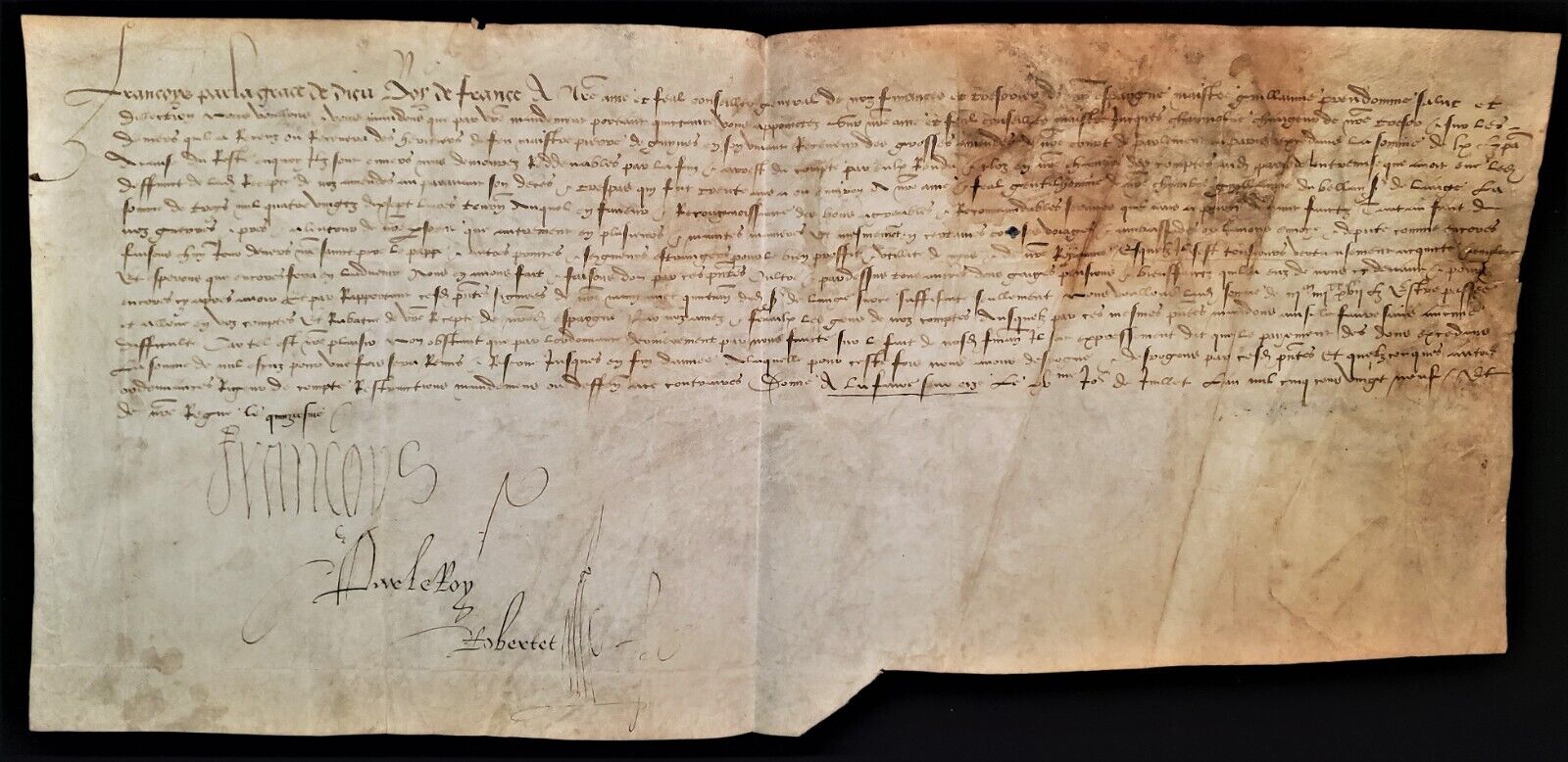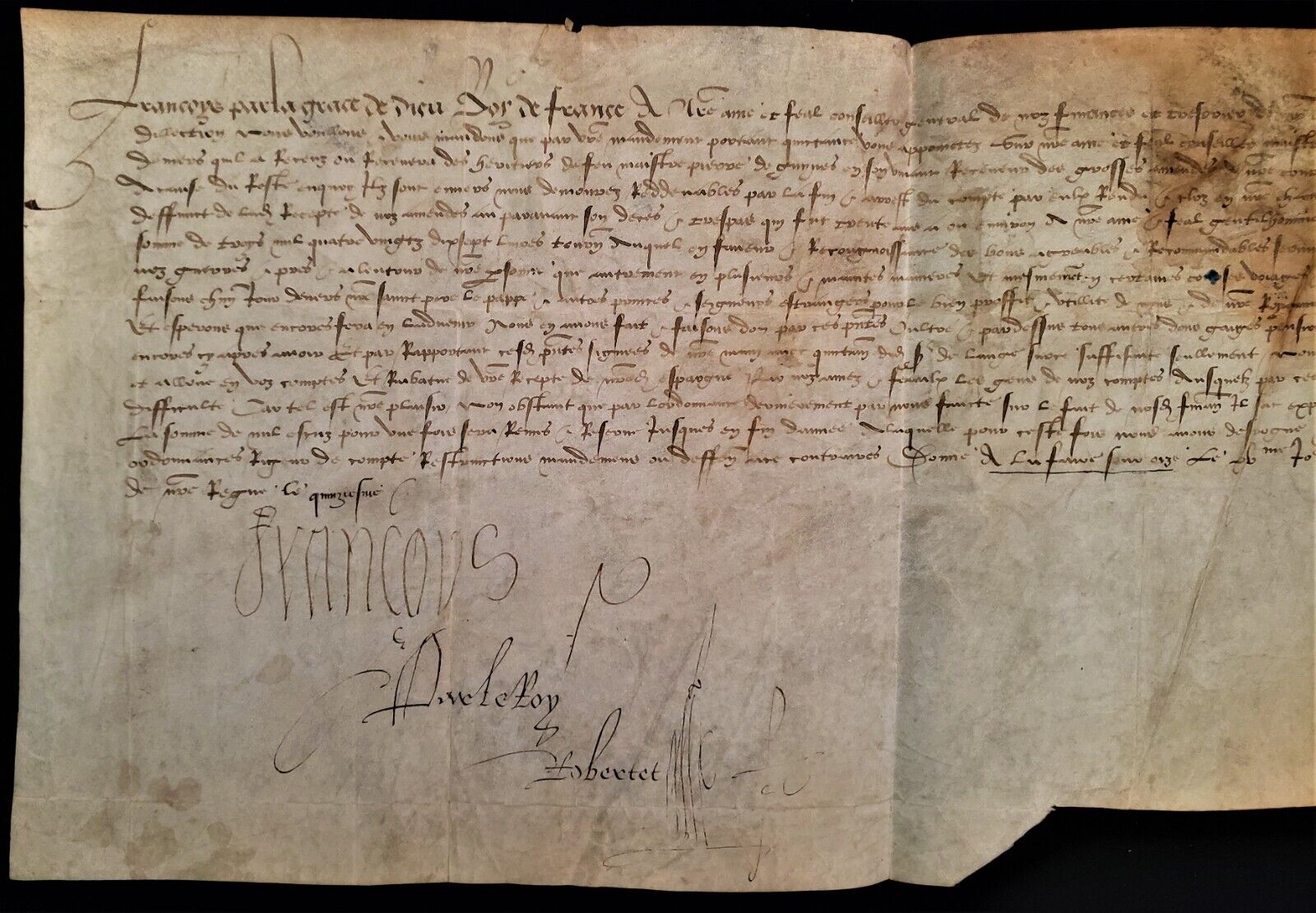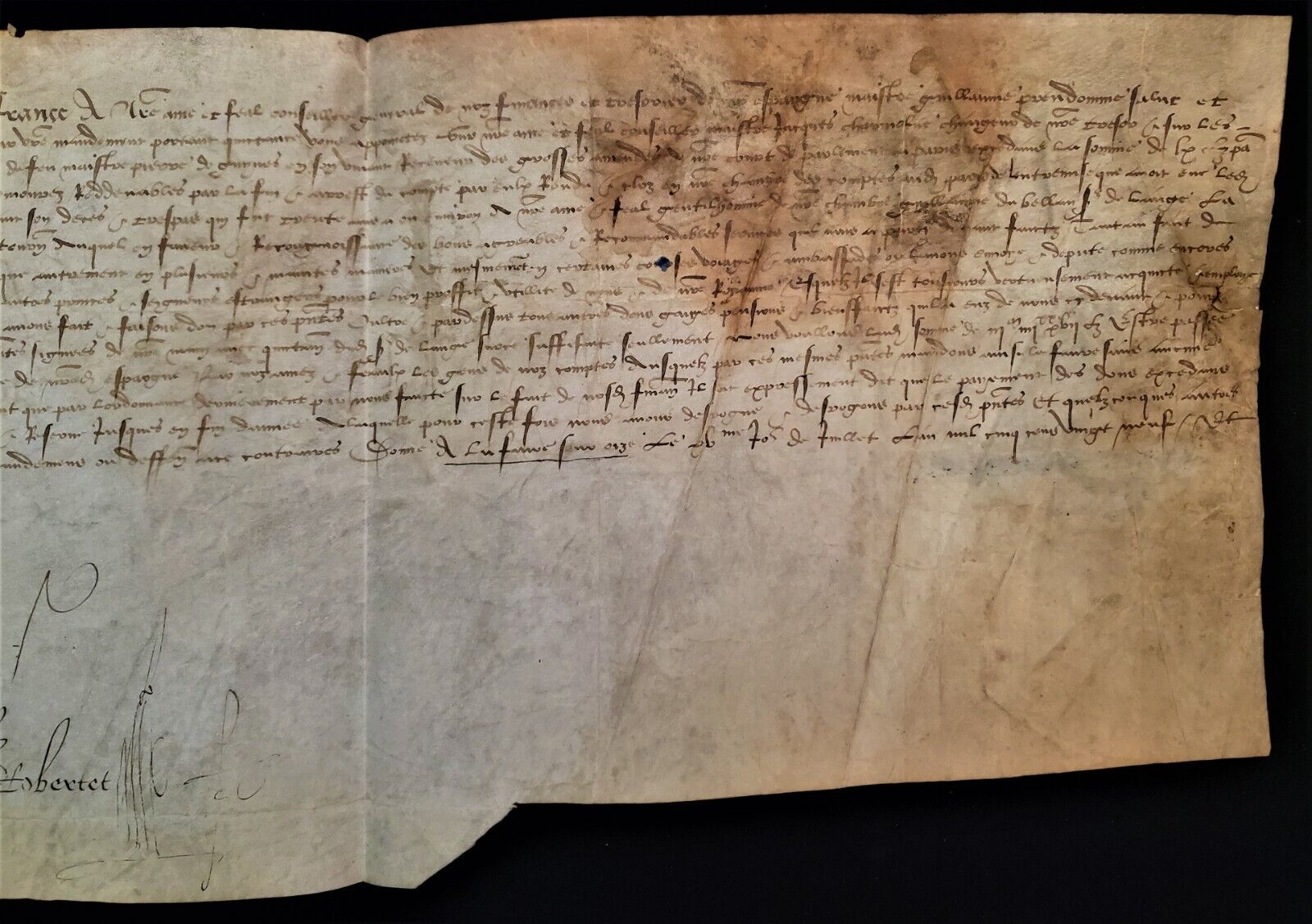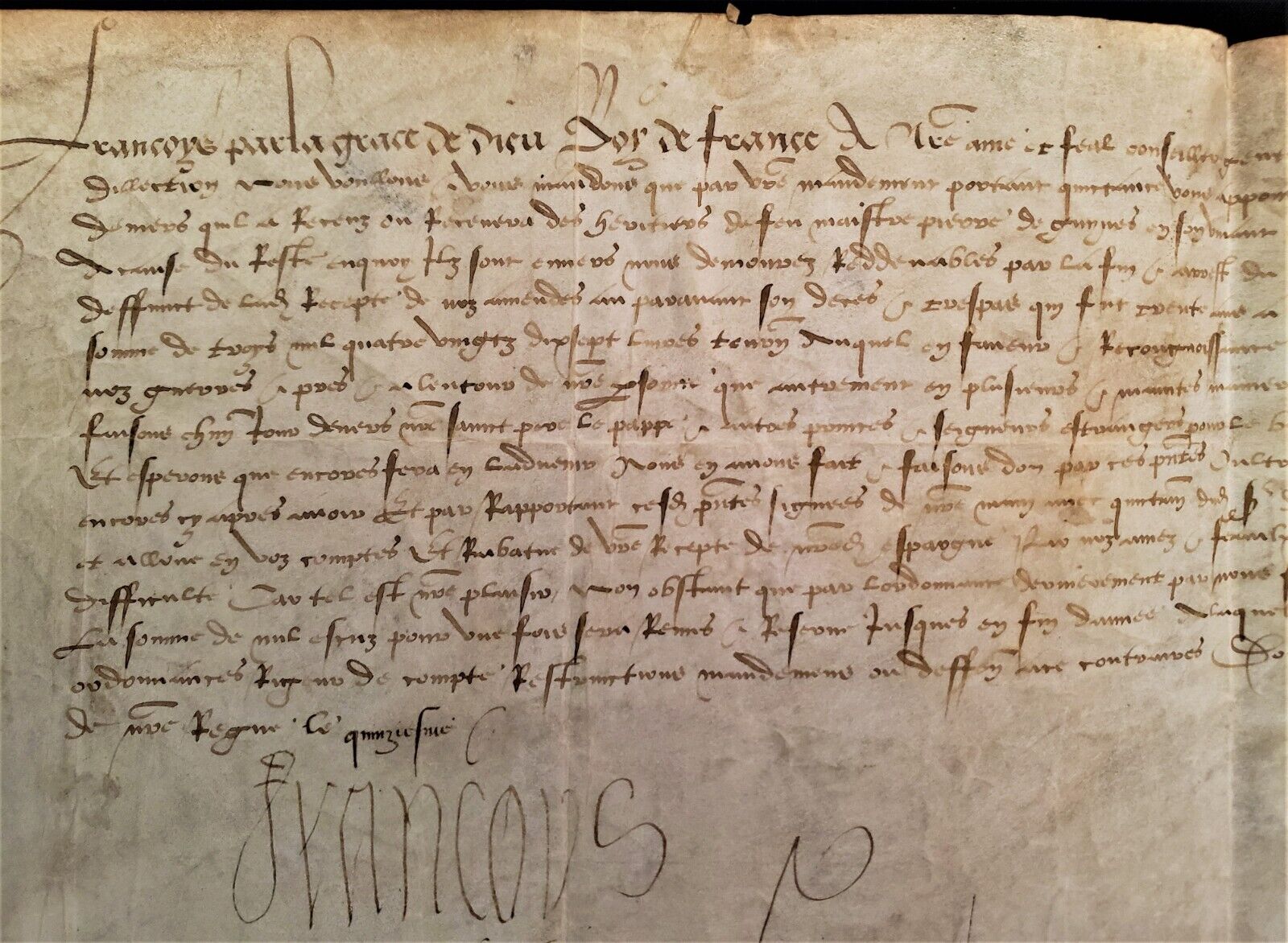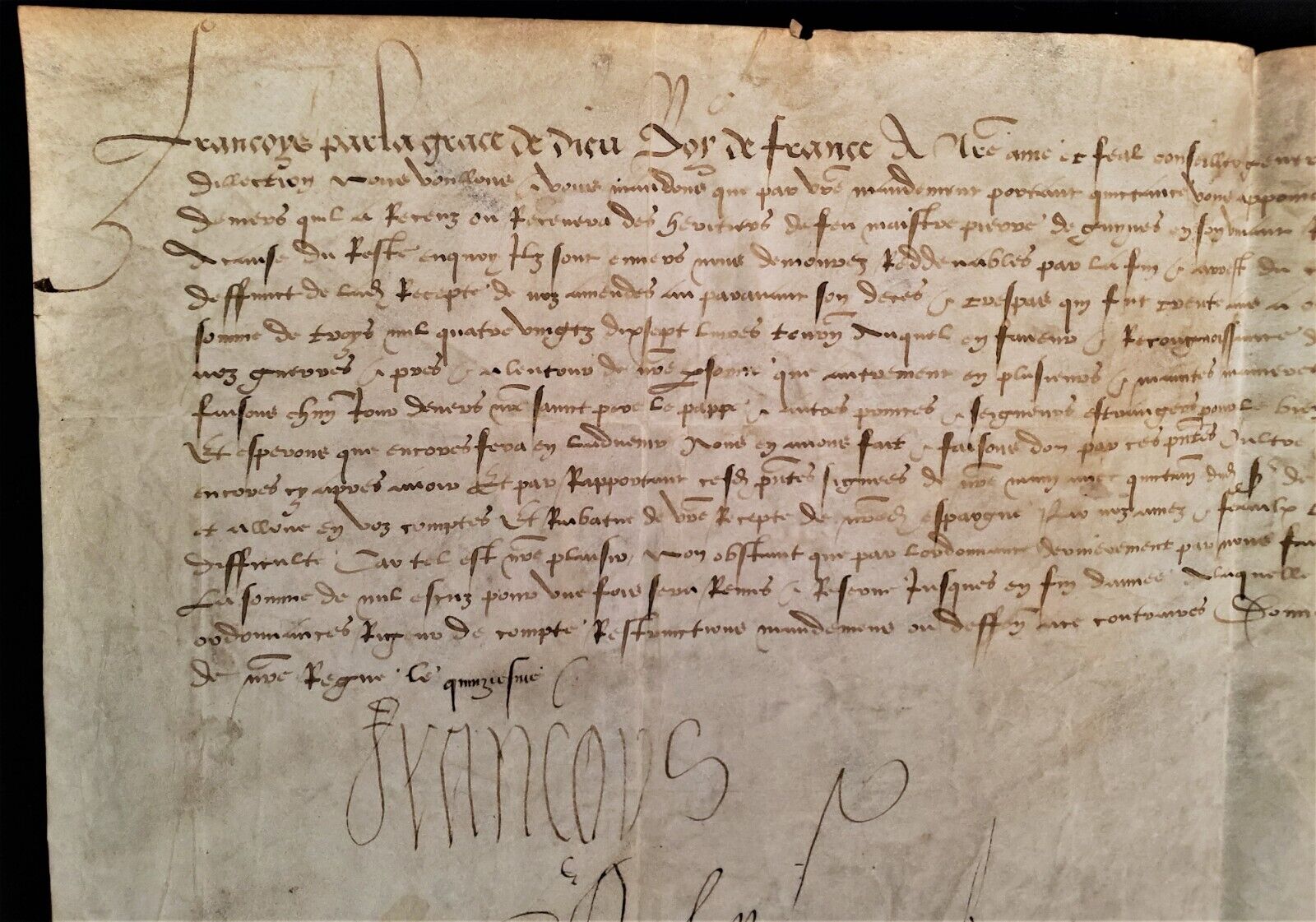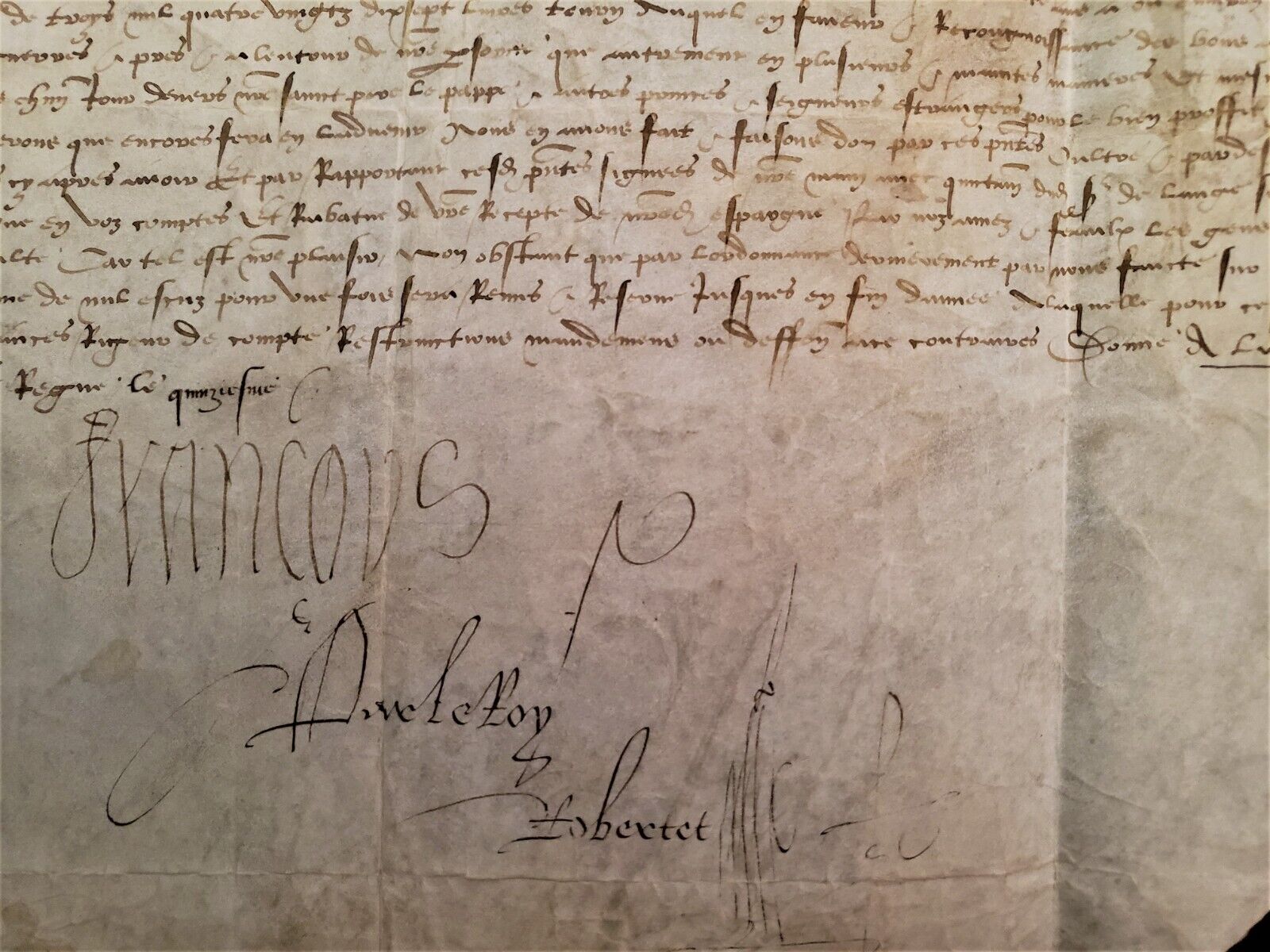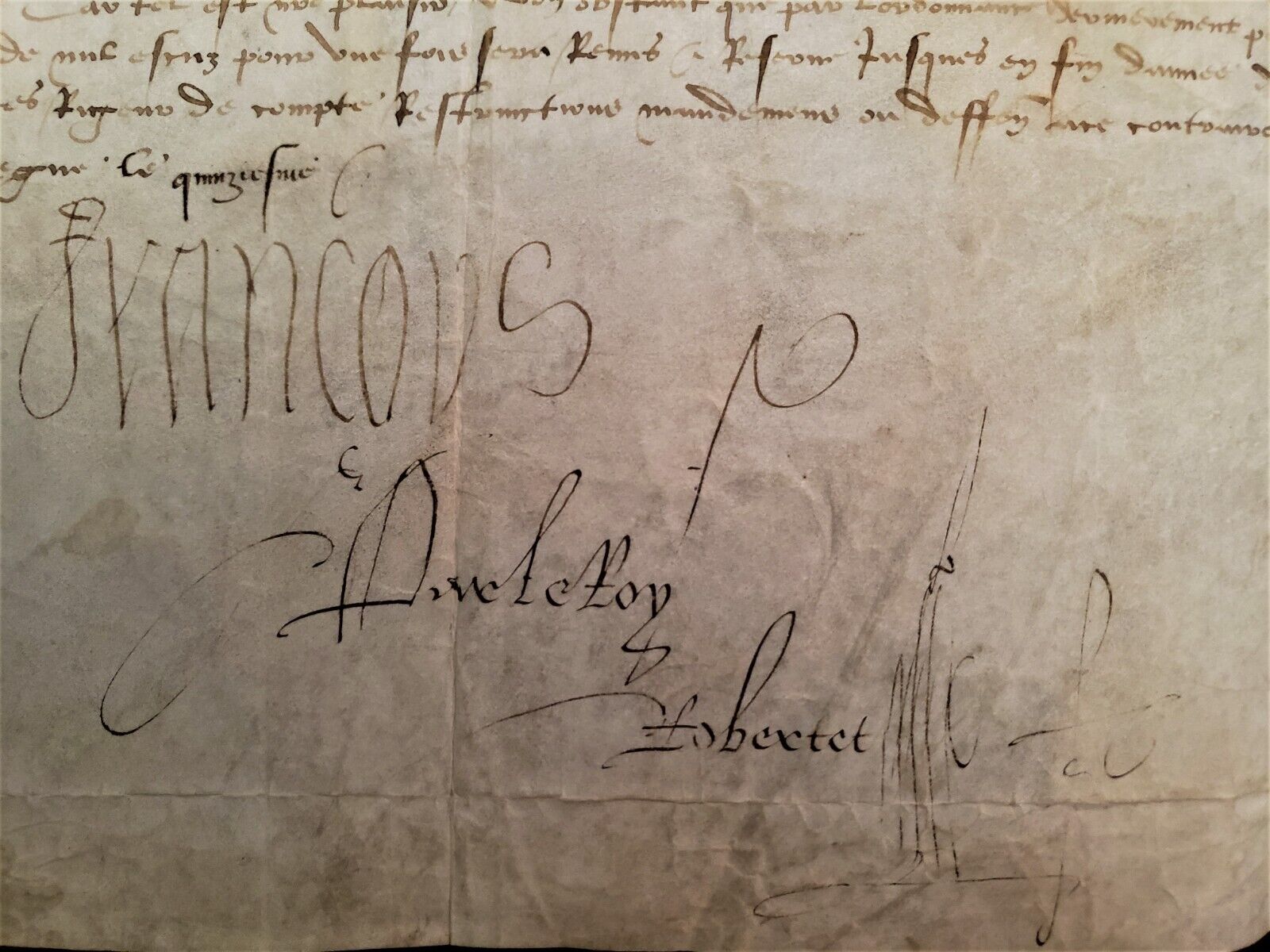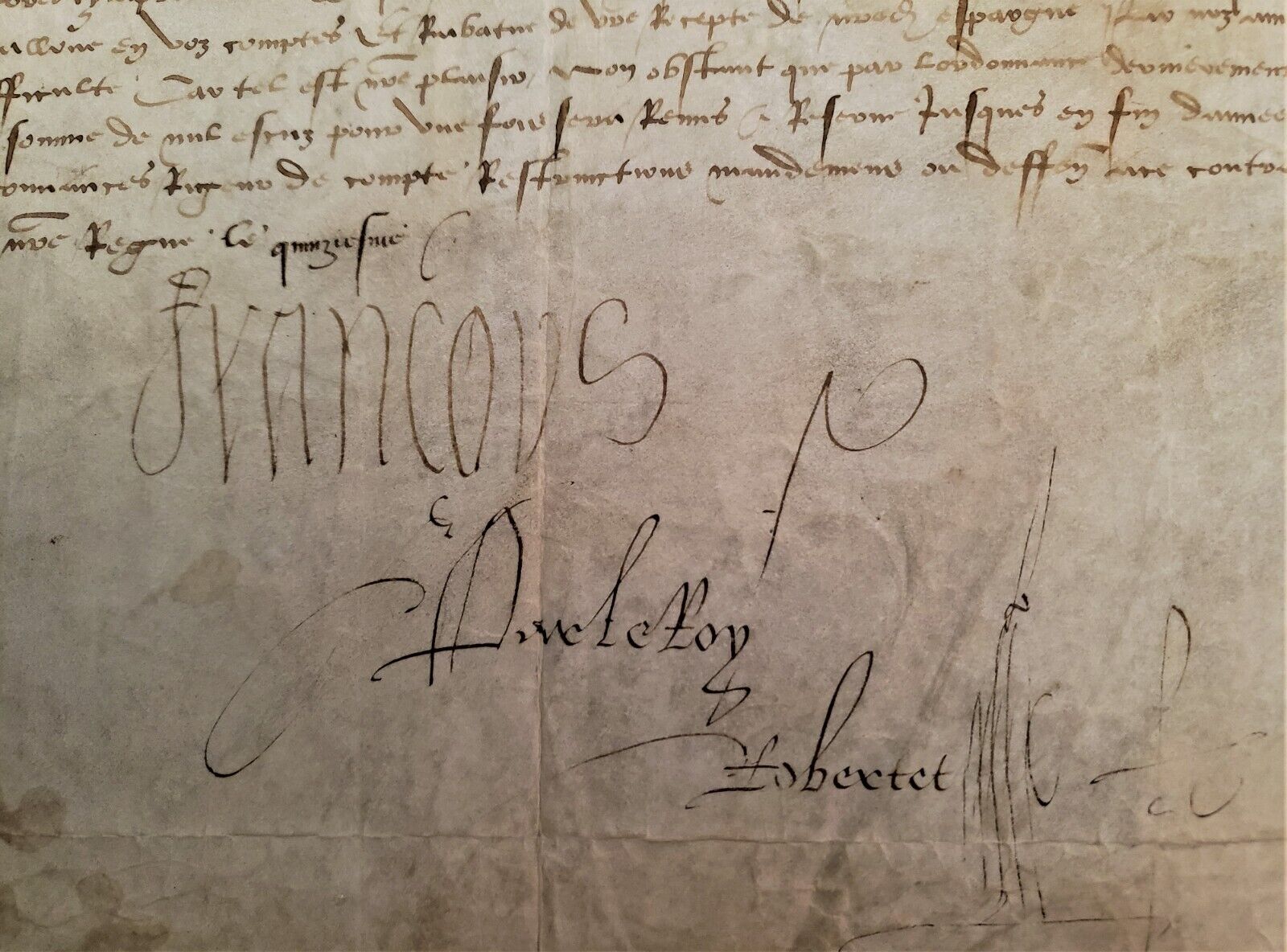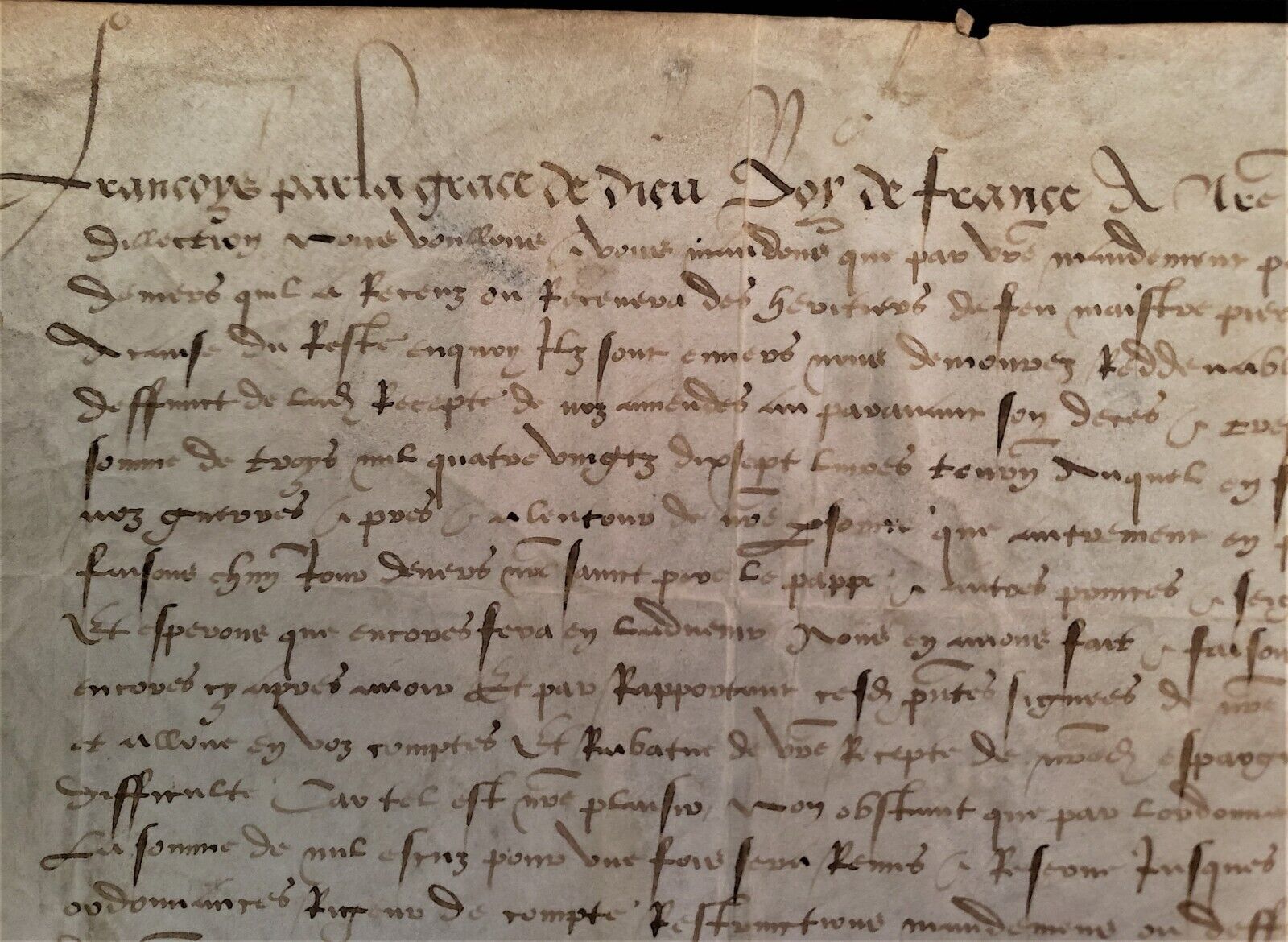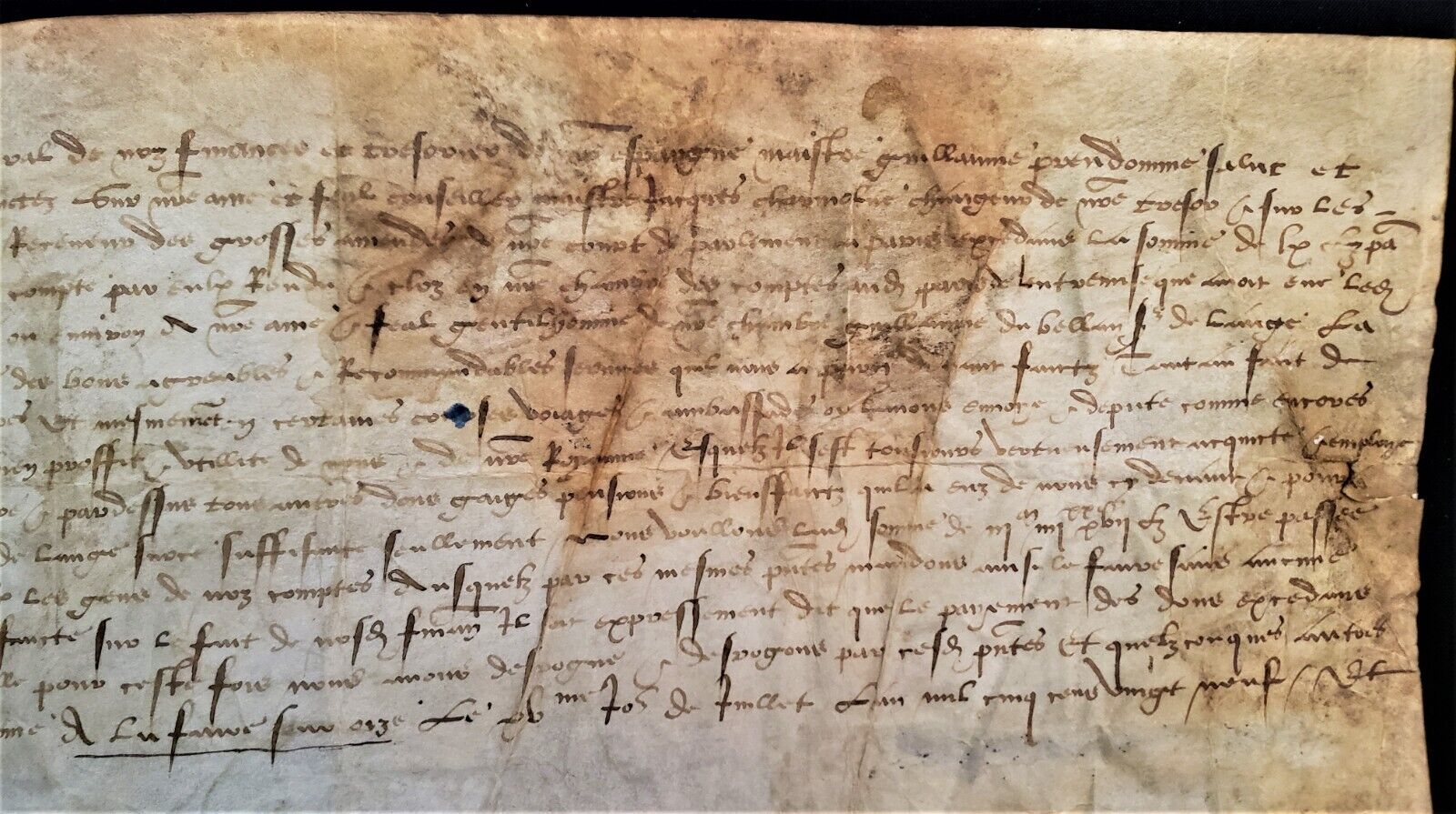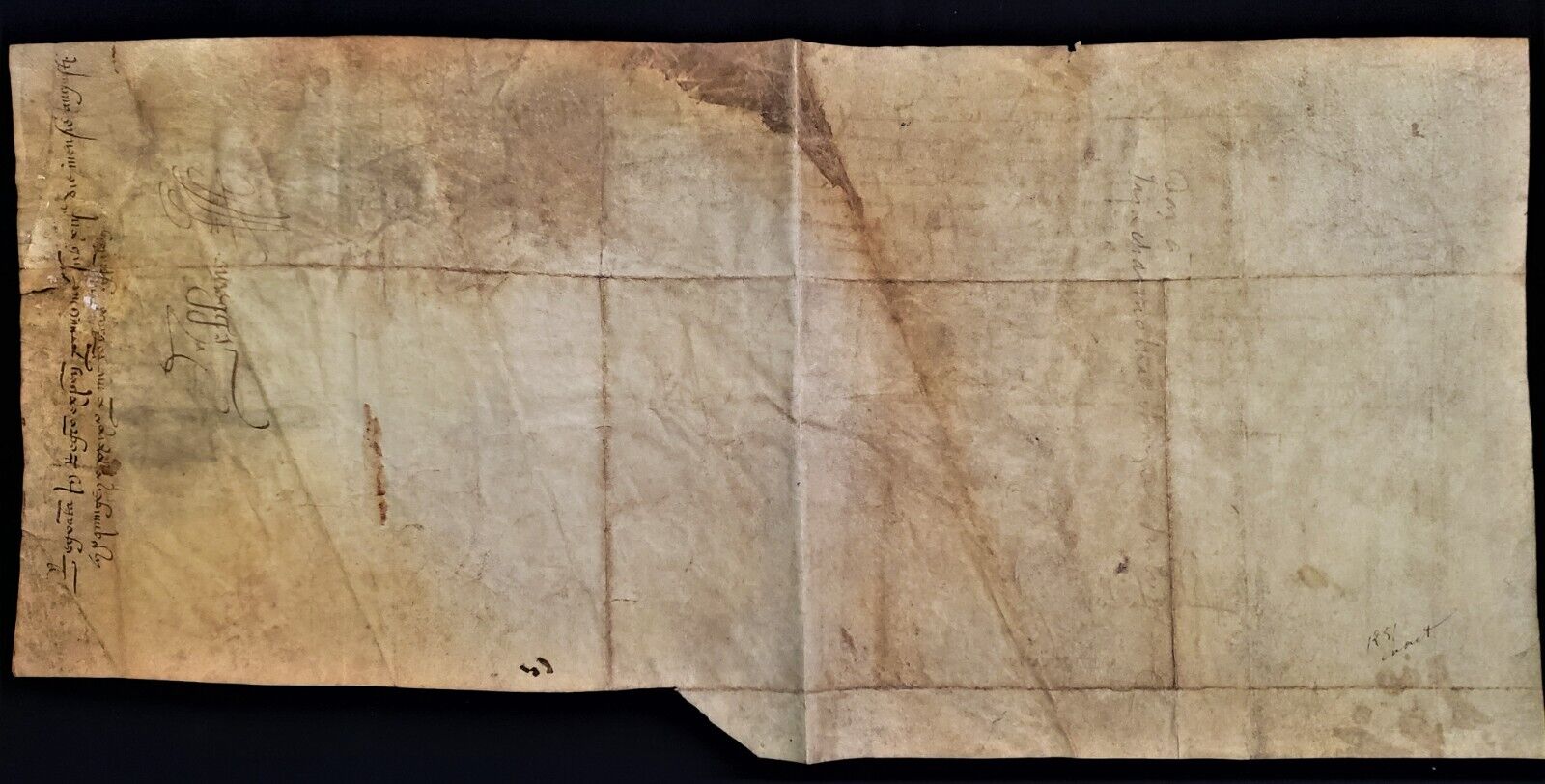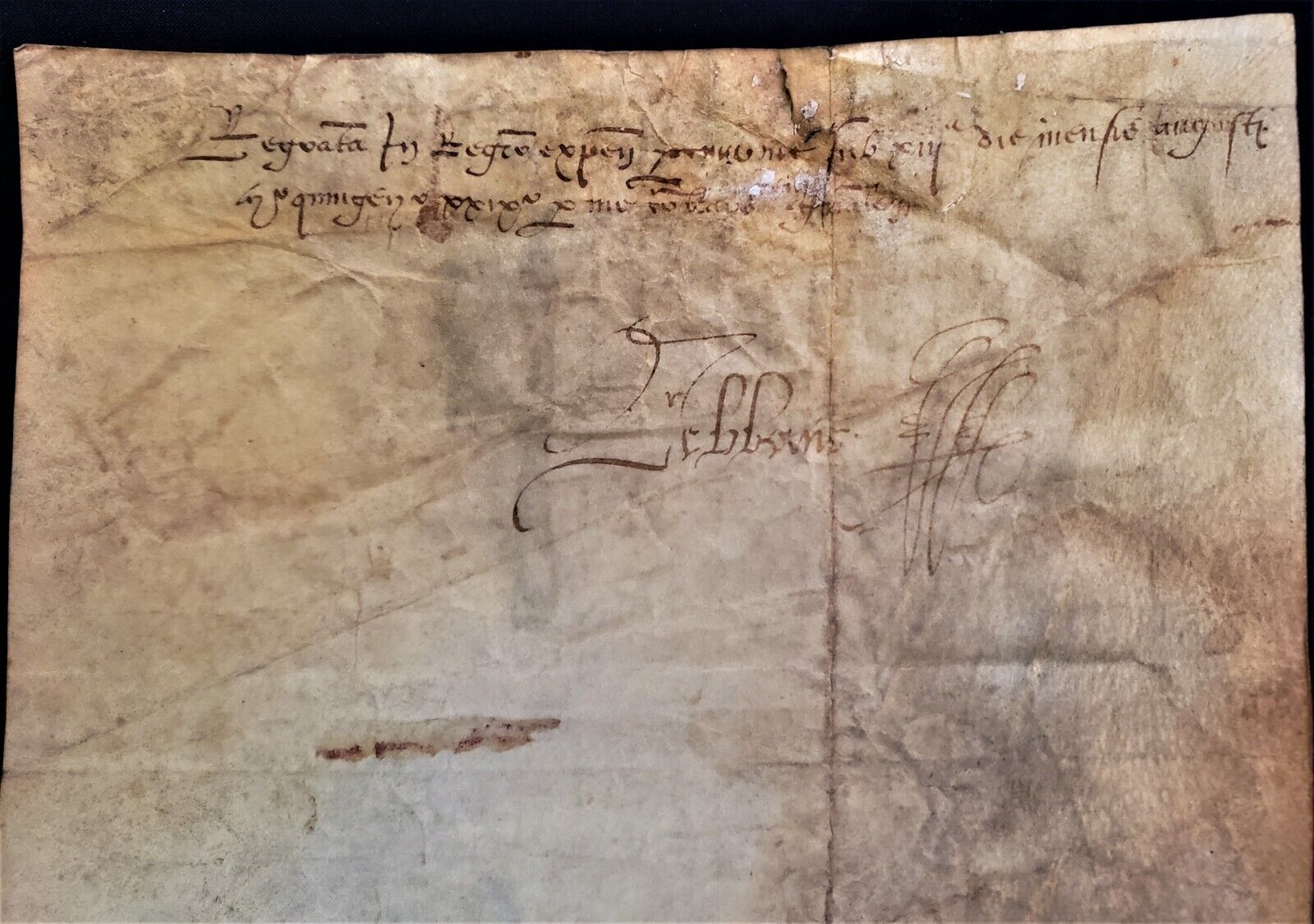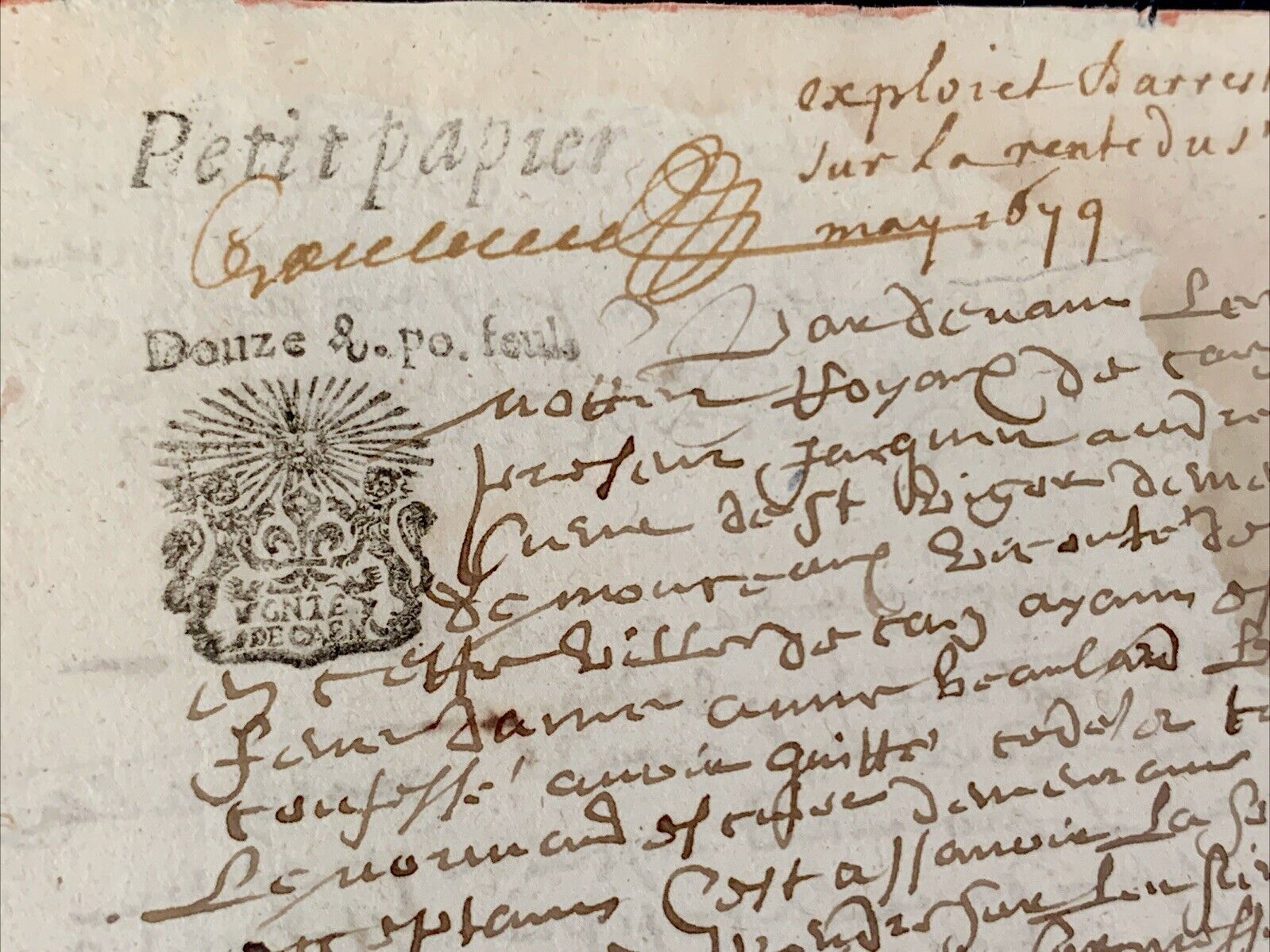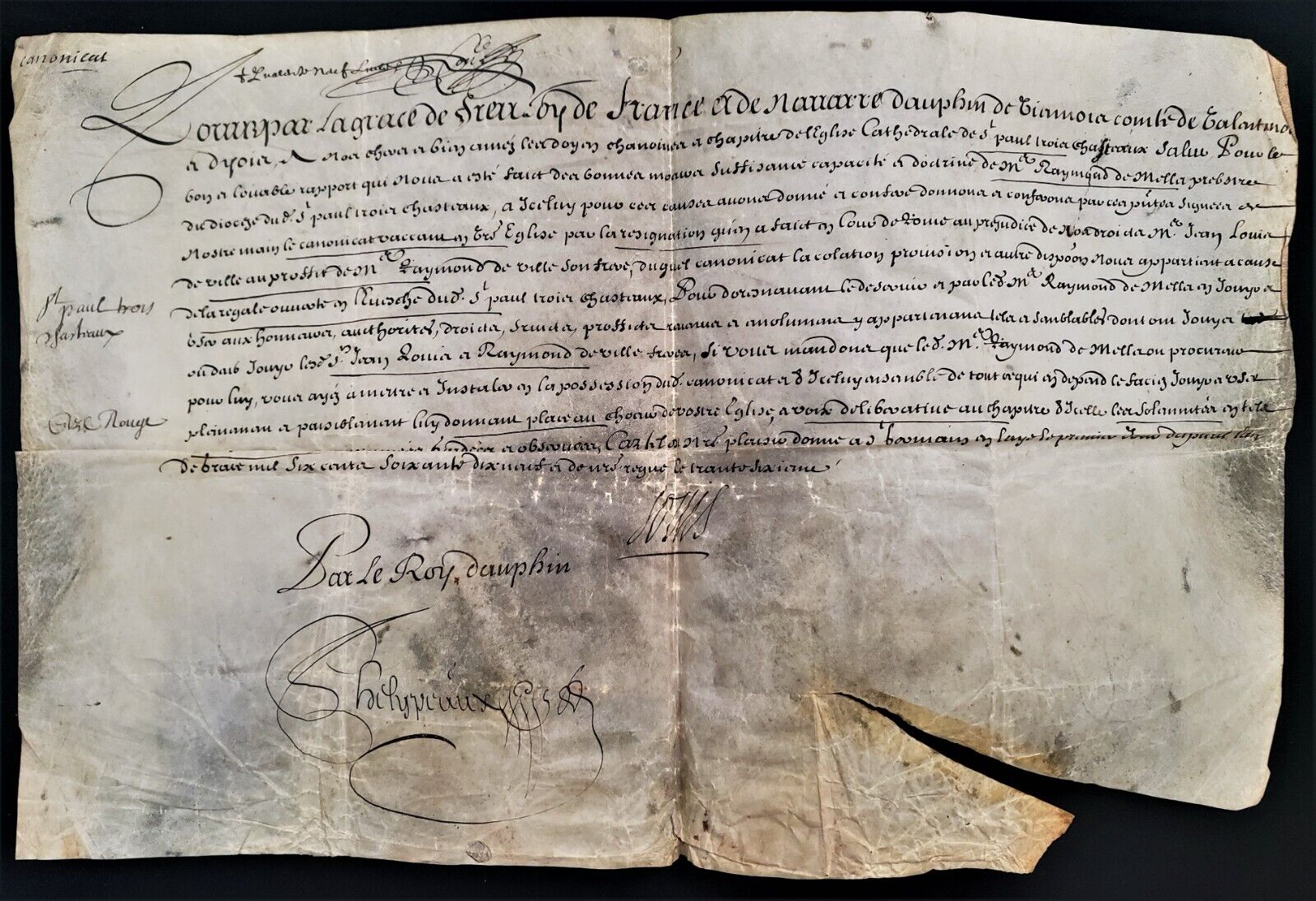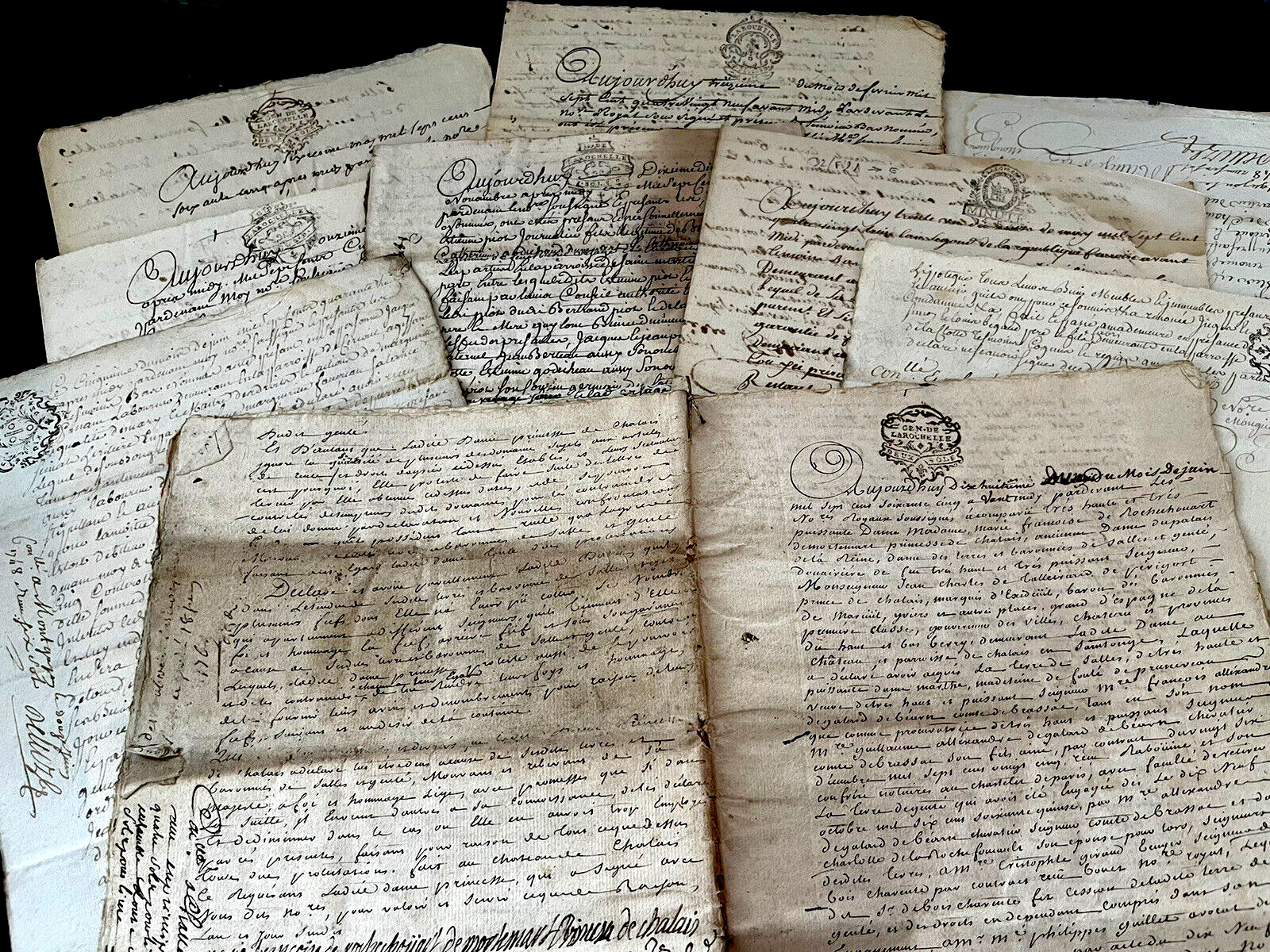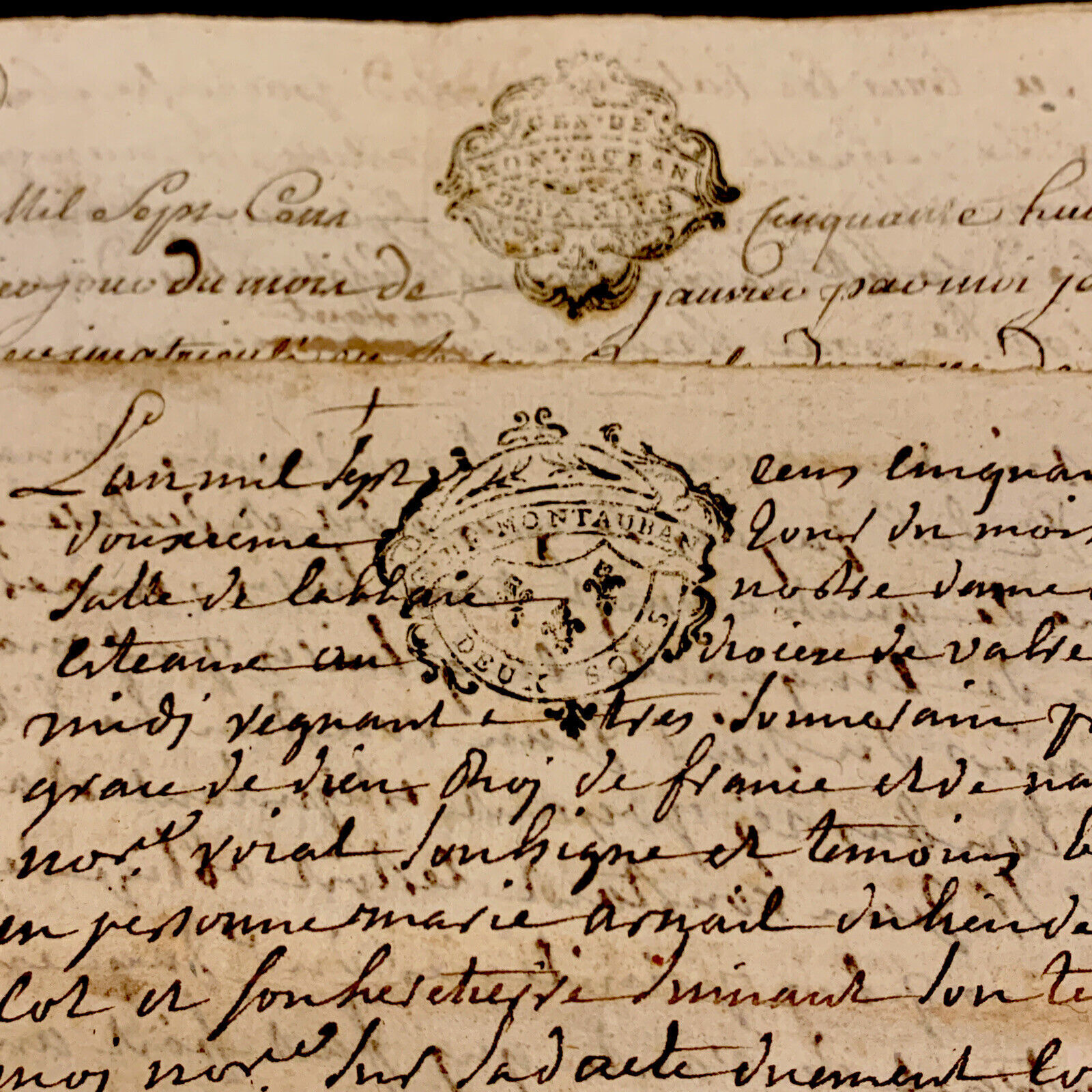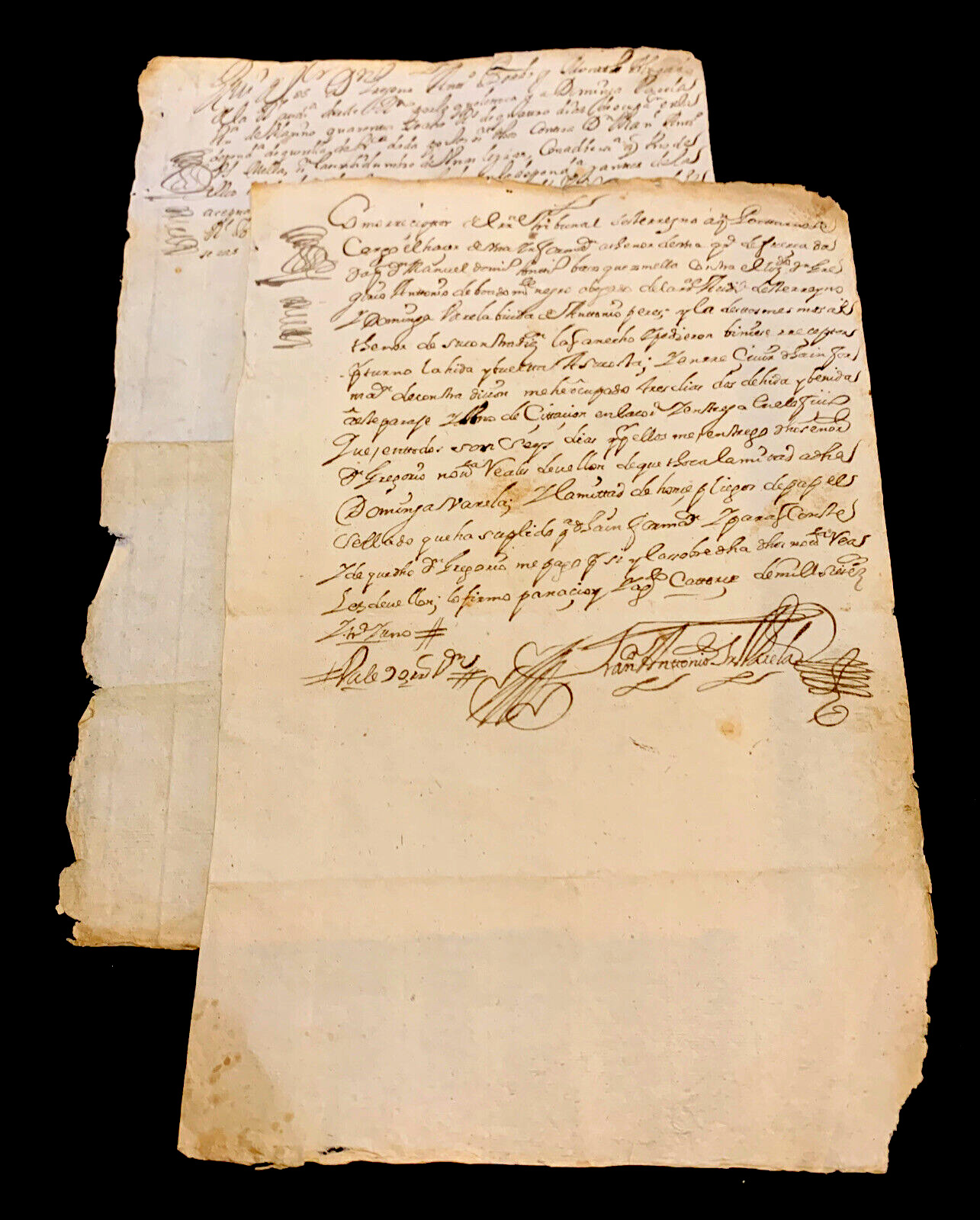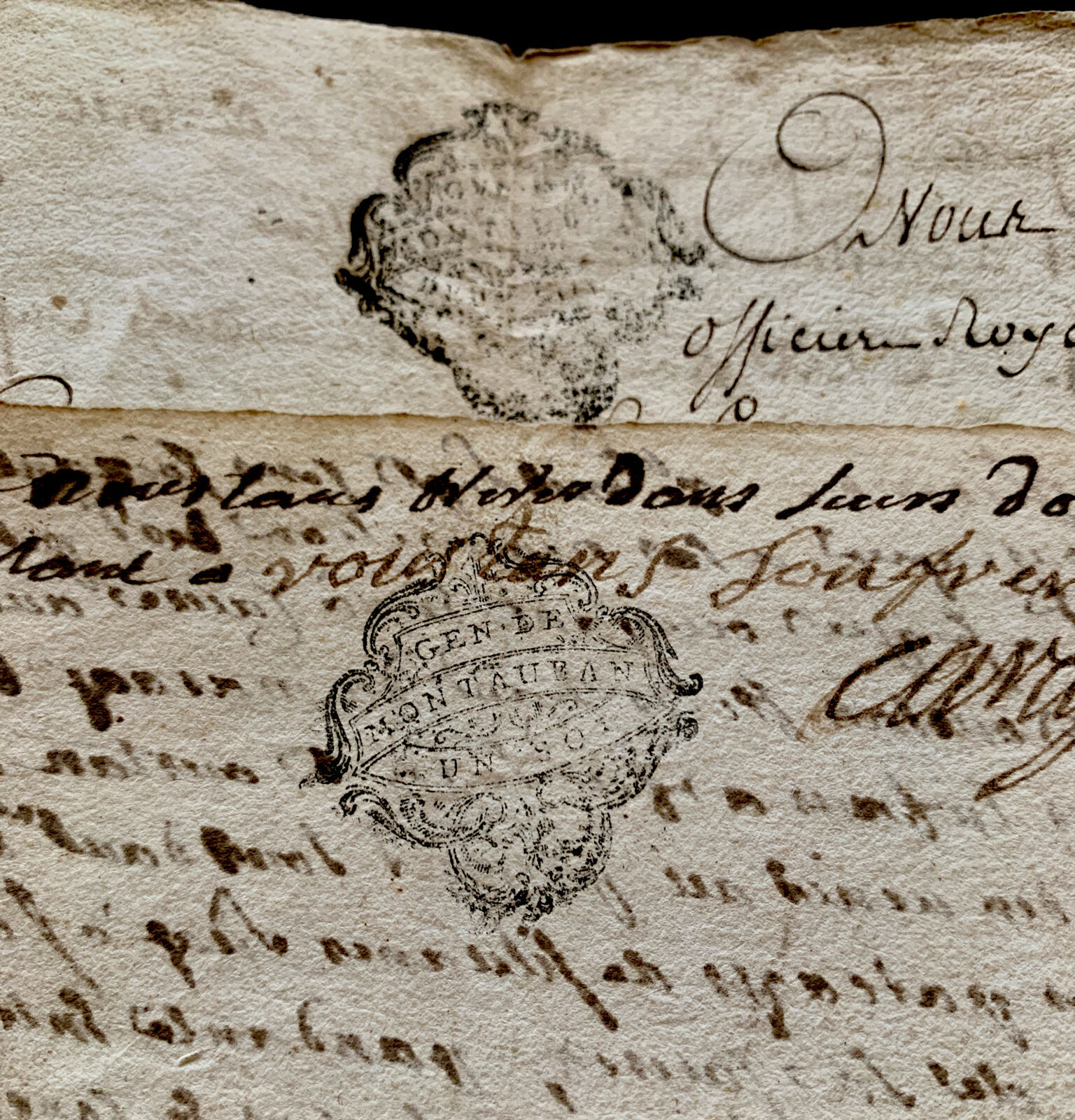-40%
KING OF FRANCE FRANCOIS I AUTOGRAPH ON DONATION ACT 1529 Father of Henry II
$ 1319.99
- Description
- Size Guide
Description
KING OF FRANCE FRANCIS ISIGNED ACT OF DONATION ON
LARGE
PARCHMENT DATED 1529
Countersigned by the King's
Counselor
Francois Robertet de Brou
Size of document: 18.4" x 9" (47 cm x 23 cm)
François Robertet de Brou,
son of Florimond I° de Robertet d'Alluye and godson of François I, he
succeeded his father as secretary to the King
François I
(born as François d'Angoulême on September 12, 1494 in Cognac and died on March 31, 1547 in Rambouillet) was crowned King of France on January 25, 1515 in Reims Cathedral. He reigned until his death in 1547. Son of Charles d'Orléans and Louise de Savoie, he belonged to the Valois-Angoulême branch of the Capetian dynasty.
François I is considered the emblematic king of the French Renaissance period. His reign allows an important development of arts and letters in France. On the military
and political level, the reign of François I
was punctuated by wars and important diplomatic events.
He has a powerful rival in the person of Charles V and must rely on the diplomatic interests of King Henry VIII of England, always eager to place himself as an ally of one side or
the other.
Francis I records successes and defeats but forbids his imperial enemy to realize his dreams, the realization of which would affect the integrity of the kingdom. The antagonism of the two Catholic sovereigns had serious consequences for the Christian West: it facilitated the spread of the nascent Reformation and above all allowed the Ottoman Empire to settle at the gates of Vienna by seizing almost all of the Kingdom of Hungary.
On the domestic level, his reign coincides with the acceleration of the diffusion of the ideas of the Reformation. The constitution of what will become under the Bourbons the absolute monarchy and the financial needs
related to the war and the development of the arts induce the need to control and optimize the management
of the State and the territory. Francis I introduces a series of reforms affecting the administration of power and
in particular the improvement of tax
yield, reforms implemented and continued under the reign of his successor and son, Henry II.
